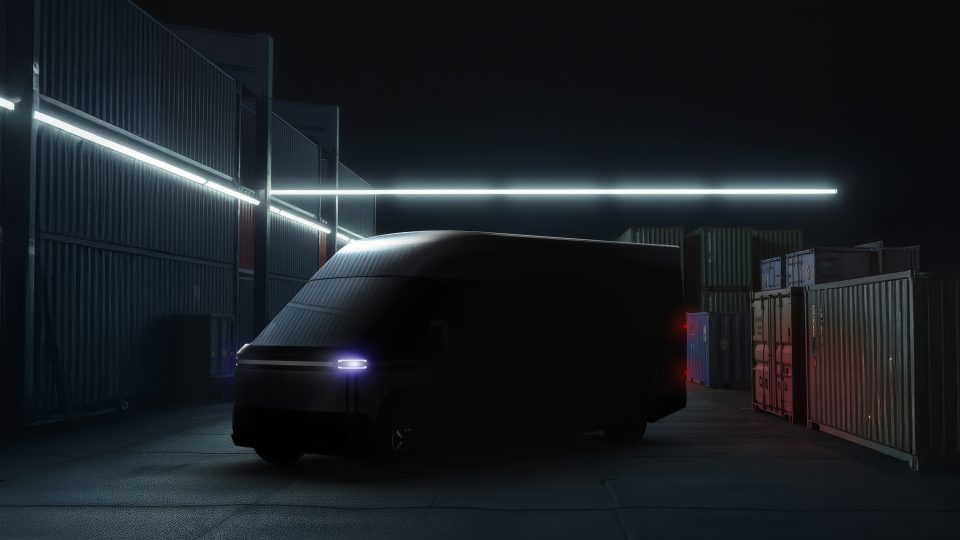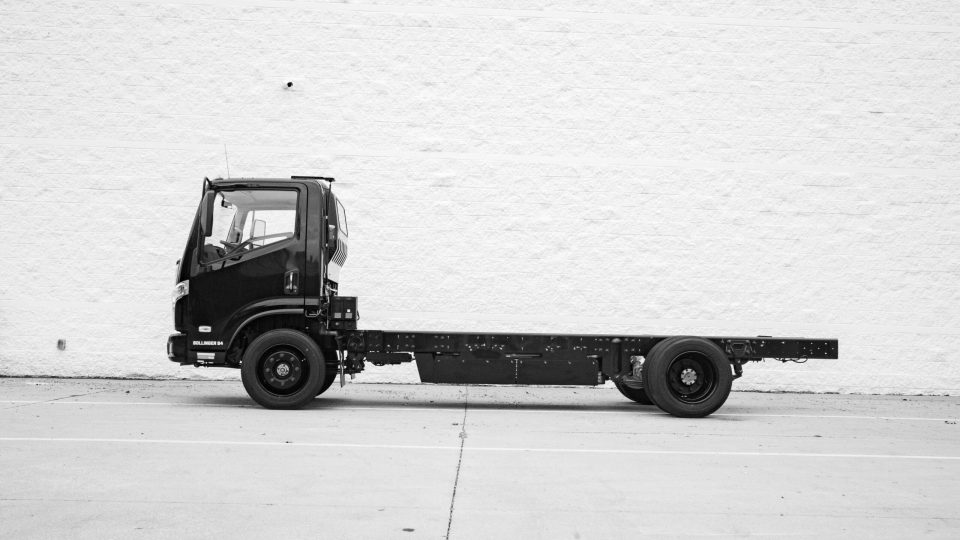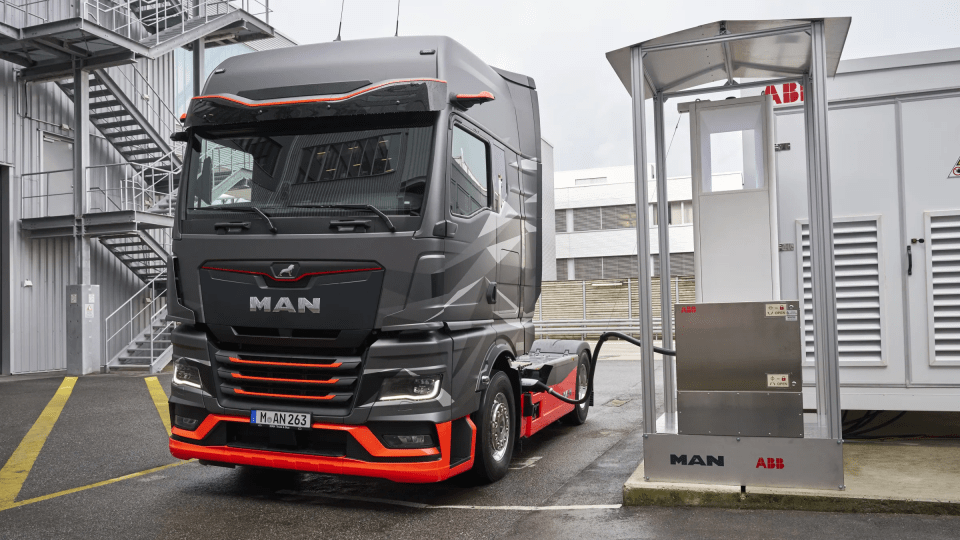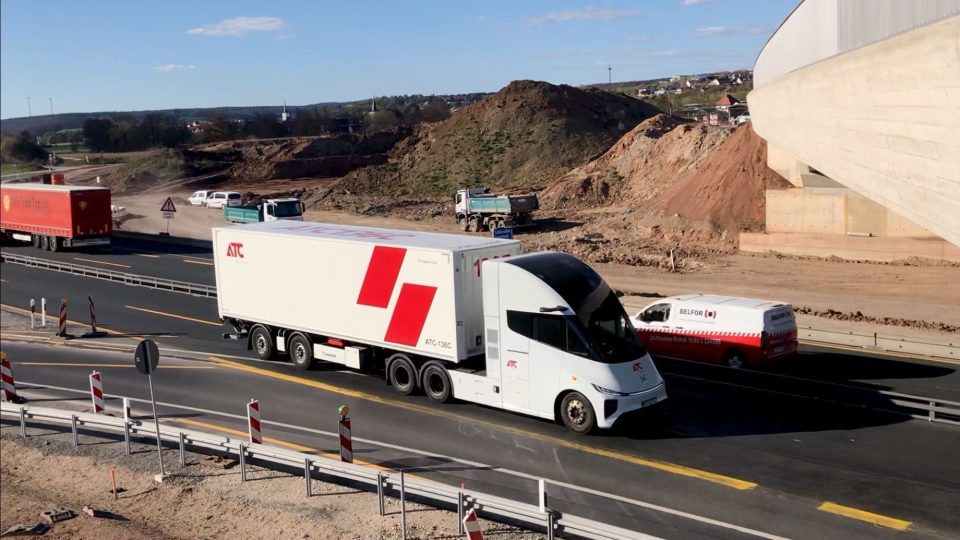Renault Trucks between the evolution of T, C and K range and electric vehicle deliveries
Renault Trucks will have a full electric range by 2023 and even some hydrogen-fueled options as for long-haul transportation in the second half of the decade. The deadline for a fossil-free offer is set to 2040, with an important backup by the Volvo Group
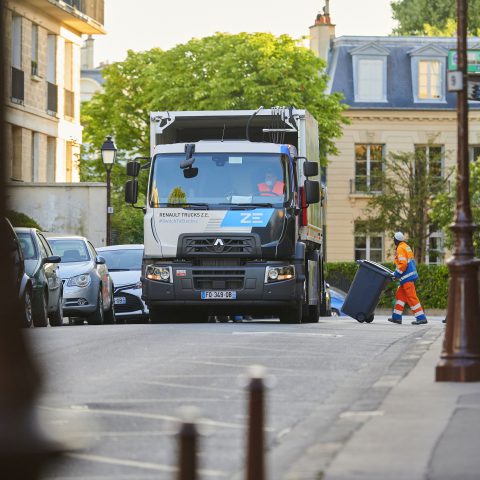
Renault Trucks presented today the upgrades in the company’s T, C and K range. No news strictly related to electric vehicles though, but some significant words coming from Renault Trucks president Bruno Blin, who stated that the French manufacturer, belonging to the Volvo Group, will have a full electric range by 2023 and even some hydrogen-fueled options as for long-haul transportation in the second half of the decade. The deadline for a fossil-free offer is set to 2040, with an important backup by the Volvo Group, as underlined during the event by the Group’s CEO Martin Lundstedt. «We’re hugely investing in innovative and sustainable solutions, relying on the newest technologie. In such a scenario, Renault trucks will keep on playing a key role», he said.
Improved traditional range: the features
As for the new features introduced today, Paul Daintree, Design Director at Renault Trucks explained that the front lighting has been totally renewed using LED technology, which not only has the benefit of providing better illumination, but also enables designers to reduce the height of the headlamp unit and fit more features into a smaller area.
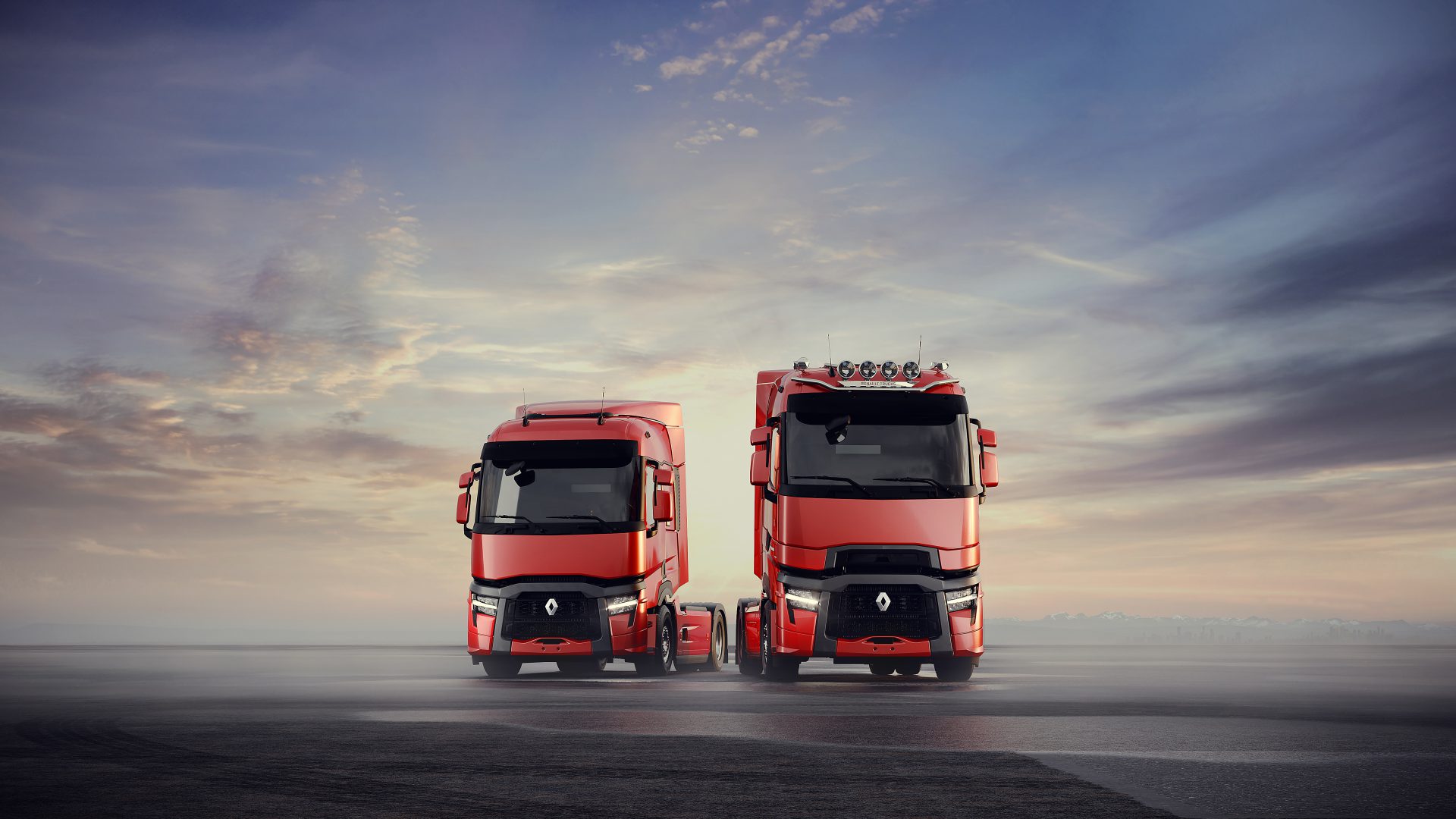
The new Renault Trucks T, T High, C and K have a new three-way adjustable steering column, with a foot operated button, and a keyless start. Finally, the fabrics and colours have been changed to soften the contrasts and help relax drivers’ eyes, which are put under considerable pressure during driving sessions.
Renault Trucks goes electric: deliveries in Italy…
While waiting for Renault’s electric offer in the heavy-duty segment, some interesting projects are emerging in the field of urban distribution. After similar experiences in Paris, Lyon and Barcelona, an electric truck for waste collection is now in action also in Florence. The Italian company Gorent has just taken delivery of a 26-tonne Renault Trucks D Wide Z.E. for waste collection in the Tuscan Capital, making it the first Renault Trucks electric vehicle to be used in Italy. Renault Trucks reaffirmed the will to achieve 10 percent of its sales volumes in electric vehicles by 2025.
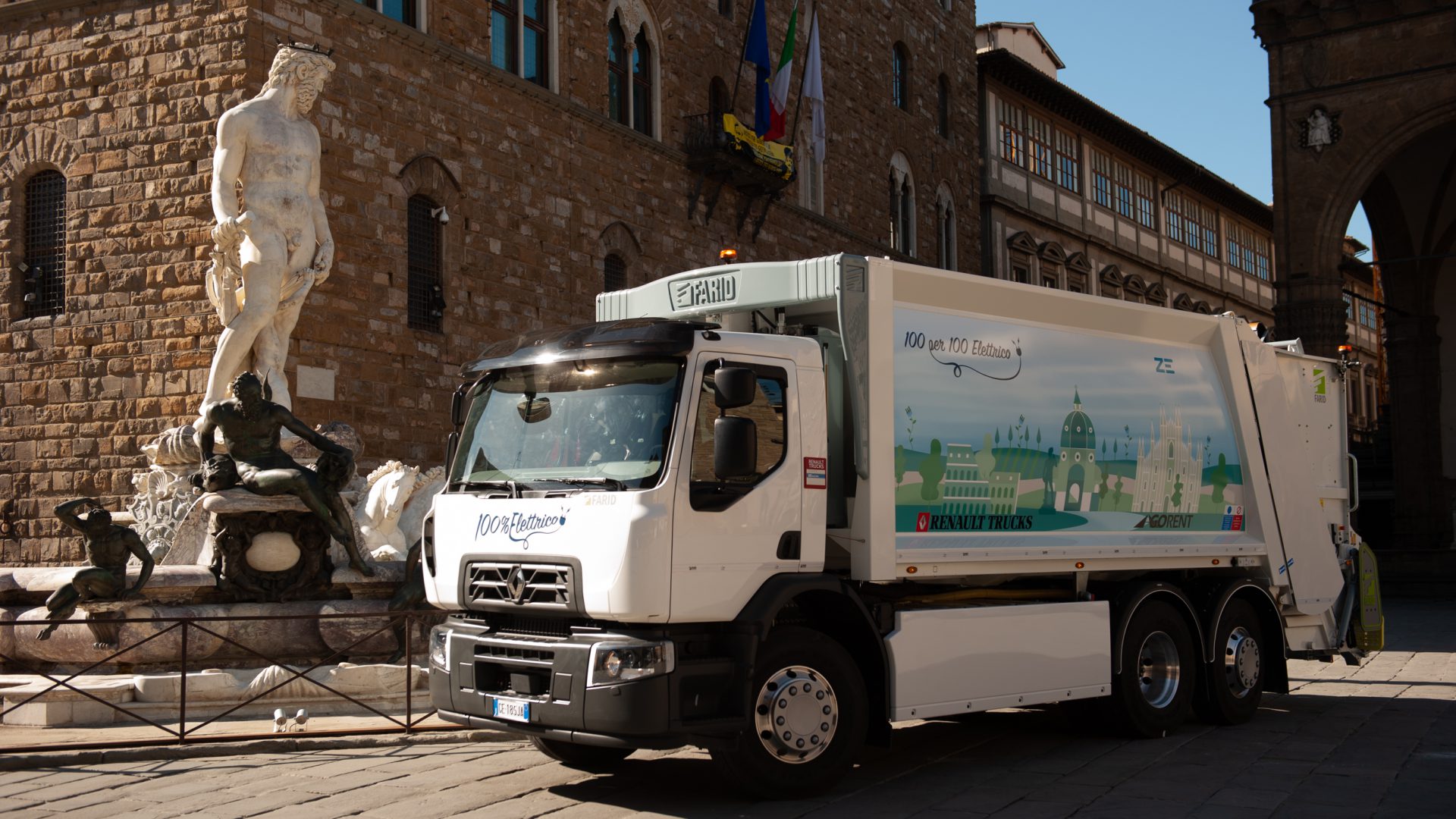
… and France!
Similarly, the municipality of Neuilly-sur-Seine (near Paris) has decided to make extensive use of electric energy for household waste collection. In this context, SUEZ has renewed its confidence in the French manufacturer Renault Trucks by ordering ten additional 100% electric D Wide Z.E trucks.
These new-generation refuse collection vehicles will collect waste between Neuilly-sur-Seine and, depending on the type of waste, Saint-Ouen or Gennevilliers, without emitting any pollutants or CO2.
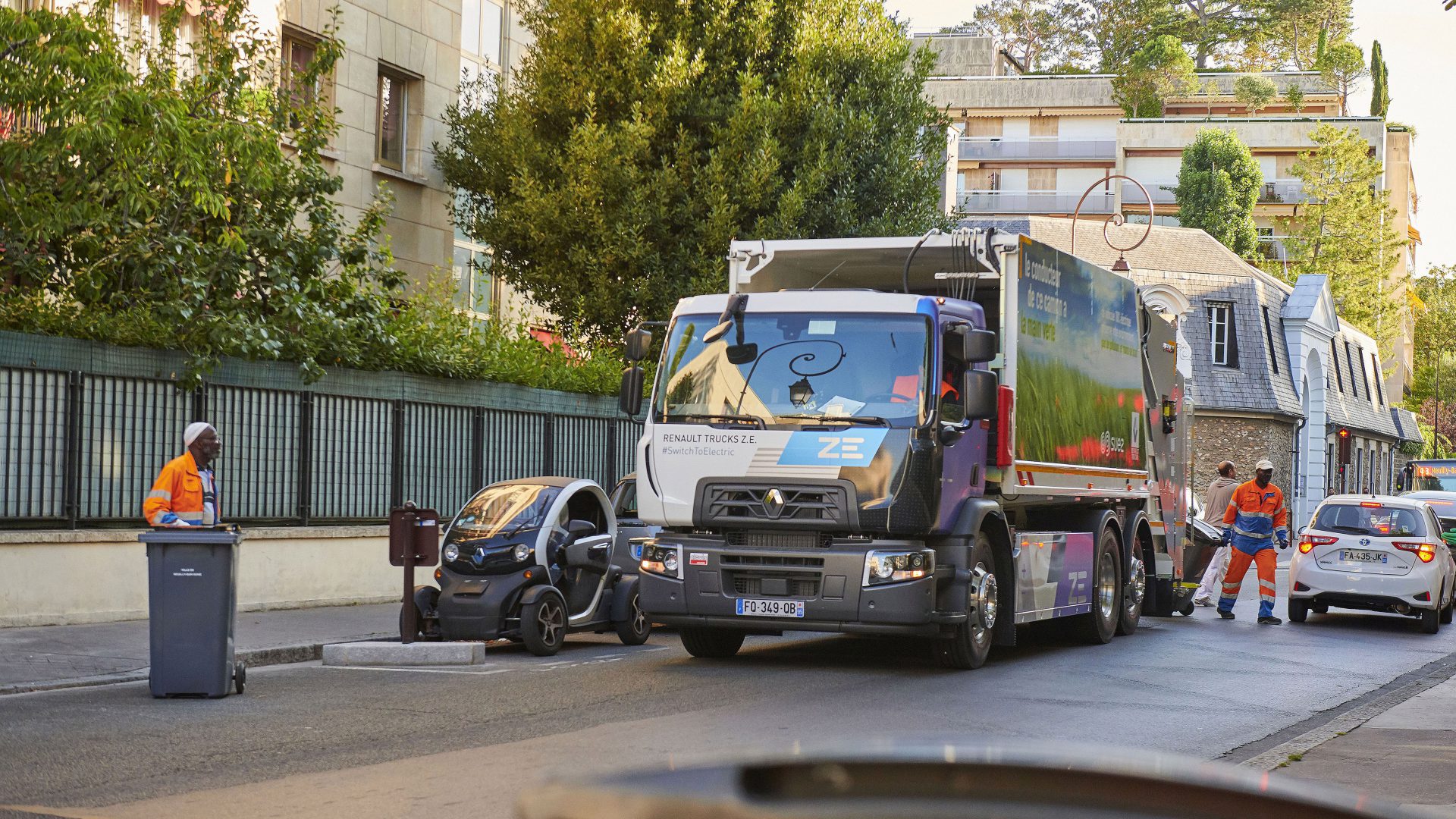
Renault Group: ElectriCity and the agreement with STMicroelectronics
Extending the sight to the Renault Group, then talking about cars and light commercial vehicles, Renault has recently announced the creation of ElectriCity, aimed at making the Renault sites in the Hauts-de-France region the most competitive and efficient production unit for electric vehicles in Europe, with 400,000 vehicles produced per year by 2025.
To support this ambitious industrial project, Renault Group plans to create 700 permanent jobs between 2022 and the end of 2024, with 350 new hires at the Maubeuge site and 350 new hires spread over the Douai and Ruitz sites. These recruitments will take place within the framework of shared approaches with local employment missions, Pôle Emploi and all the stakeholders in the region.
In addition, Renault Group and STMicroelectronics (here the agreement between the latter and Arrival for their vans) have announced a strategic cooperation on the design, development, manufacturing, and supply to Renault Group of STMicroelectronics’ products and related packaging solutions for the power electronics systems of battery-operated and hybrid vehicles.




